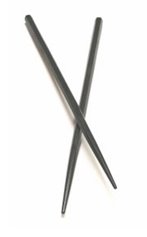China's Chopstick Tax
by Brandon Fuller
Planning on buying an SUV or golf accessories in China? Probably not, but in the unlikely event that you are: buy soon. The Chinese government hopes to encourage environmental conservation and curb conspicuous consumption with a slew of new tax hikes on April 1st. An article in The New York Times outlines the new proposals, including taxes on disposable wooden chopsticks and luxury watches.
A tax offers government several opportunities. Taxes raise government revenue, discourage certain activities, and give people an incentive to adopt alternatives to the taxed behavior. Consider an emissions tax. By taxing steel mill emissions a government could raise some revenue, discourage pollution-intensive steel production, and simultaneously give steel mills an incentive to adopt cleaner technology.
1. What types of conservation does the Chinese government hope to encourage by taxing wooden chopsticks and vehicles with large engines?
2. As China increases taxes on vehicles with engines over 2 liters, it is decreasing taxes on vehicles with engines of 1 to 1.5 liters. How will the tax affect foreign automakers that primarily sell big engines in China?
3. Chinese automakers produce relatively small vehicles compared to their foreign counterparts. How will the tax affect the demand for small-engine vehicles?
China plans to tax several luxury items, including watches, golf accessories, and yachts. Consumption of luxury goods tends to be highly price sensitive. In econ jargon, the price elasticity of demand for luxury goods is highly elastic--small price changes induce relatively large changes in quantity demanded. By raising the price of a luxury item with a tax, government can expect a relatively large drop in sales of the item.
Take America's disastrous yacht tax of 1990. Uncle Sam's tax effectively increased high-end yacht prices. Wealthy Americans responded to the tax by substituting away from yachts toward other status symbols like jets, sports cars, horses, handbags, and helicopters. Yacht sales dropped and the tax fell far short of government revenue projections. Employment in the yacht industry went the way of free falling yacht sales--not exactly the intended consequence of the tax.
4. Do you think China's luxury taxes will raise lots of government revenue?
5. China faces a bit of an image problem at the moment. The Communist Party resides over free market prosperity in urban centers even as the heavily state-controlled countryside languishes in poverty. The result is a growing income gap between rural and urban Chinese, made visible by images of luxurious urban prosperity and rural destitution. Might the Communist Party be more interested in discouraging conspicuous consumption than raising revenue?
Topics: Tax
Labels: Taxes



0 Comments:
Post a Comment
<< Home